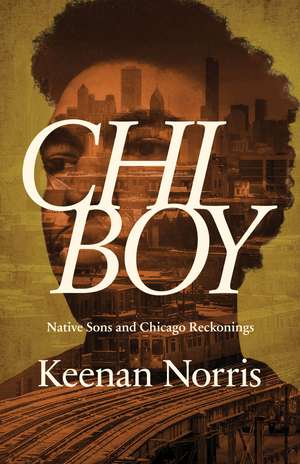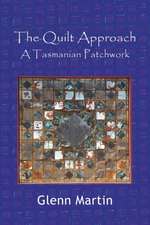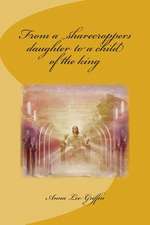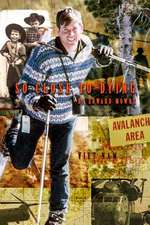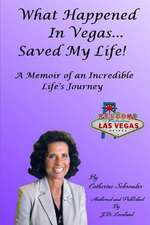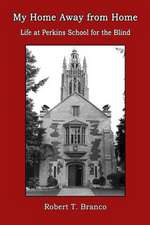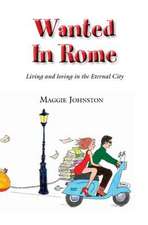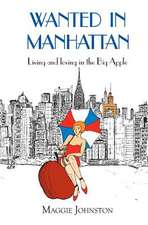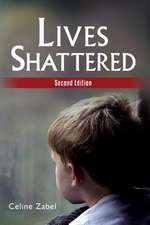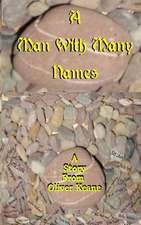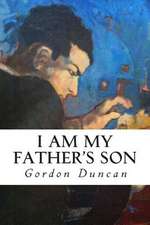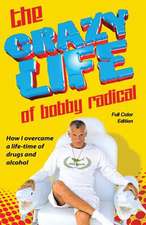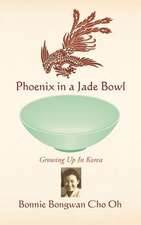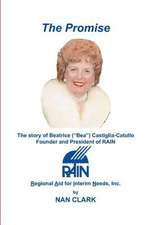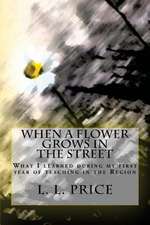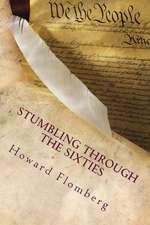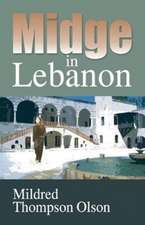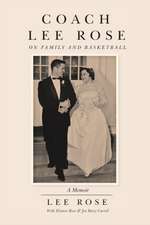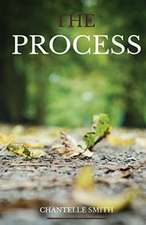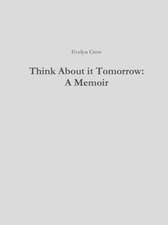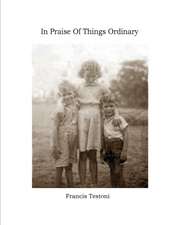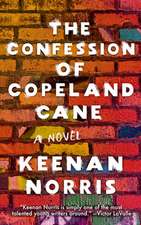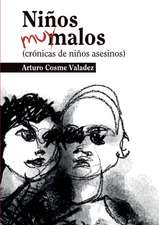Chi Boy: Native Sons and Chicago Reckonings: Machete
Autor Keenan Norrisen Limba Engleză Paperback – 9 ian 2023
In Chi Boy, Keenan Norris melds memoir, cultural criticism, and literary biography to indelibly depict Chicago—from the Great Migration to the present day—as both a cradle of black intellect, art, and politics and a distillation of America’s deepest tragedies. With the life and work of Richard Wright as his throughline, Norris braids the story of his family and particularly of his father, Butch Norris, with those of other black men—Wright, Barack Obama, Ralph Ellison, Frank Marshall Davis—who have called Chicago home. Along the way he examines the rise of black street organizations and the murders of Yummy Sandifer and Hadiya Pendleton to examine the city’s status in the cultural imaginary as “Chi-Raq,” a war zone within the nation itself. In Norris’s telling, the specter of violence over black life is inescapable: in the South that Wright and Butch Norris escaped, in the North where it finds new forms, and worldwide where American militarism abroad echoes brutalities at home. Yet, in the family story at the center of this unforgettable book, Norris also presents an enduring vision of hope and love.
Preț: 161.97 lei
Nou
Puncte Express: 243
Preț estimativ în valută:
30.100€ • 32.24$ • 25.59£
30.100€ • 32.24$ • 25.59£
Carte tipărită la comandă
Livrare economică 11-17 aprilie
Preluare comenzi: 021 569.72.76
Specificații
ISBN-13: 9780814258538
ISBN-10: 0814258530
Pagini: 240
Dimensiuni: 140 x 216 x 23 mm
Greutate: 0.3 kg
Editura: Ohio State University Press
Colecția Mad Creek Books
Seria Machete
ISBN-10: 0814258530
Pagini: 240
Dimensiuni: 140 x 216 x 23 mm
Greutate: 0.3 kg
Editura: Ohio State University Press
Colecția Mad Creek Books
Seria Machete
Recenzii
“The author’s precise, often luminous prose powerfully reconstructs his family’s journey and its reflection of Chicago’s troubling relationship to Black America … [A] striking, unusual blend of meditative memoir and urgent social critique.” —Kirkus
“Poignant and elegantly written, this is a moving look at a city’s contradictions laid bare.” —Publishers Weekly
“One of the most beautifully written books I’ve ever read. … Chi Boy is a powerful indictment of Jim Crow’s enduring legacy. Both deeply personal and deeply political, it is a palpable denunciation of white supremacy and the foundational lies that sustain it.” —Eleanor J. Bader, The Indypendent
“Blending biography with history and sociology, Chi Boy is highly absorbing as it compares the Chicago-connected paths of Wright, Butch, and President Barack Obama. Norris adeptly profiles the three men, along with the travails of a city perpetually haunted by corruption, racism, and violence.” —Philip Zozzaro, Booklist
“Keenan Norris presents Chicago as both the existential and the historical touchstone for the composite American that is the Black man, from Richard Wright to Jeff Fort to Barack Obama to those who died young either in the city or in deep connection with it. … At the same time, Chi Boy is a book written by a son about his father. Its formal arrangement as pastiche foreshadows this throughout and brings it into utter and utterly beautiful relief in the closing chapters.… All of this makesChi Boyat once sobering yet hopeful.” —Richard Rosengarten, The Christian Century
“Norris paints a fierce, clear-eyed portrait of Chicago as he plumbs the parallel lives of Richard Wright and his own family members, who escaped the Jim Crow South for the ‘James Crow’ North. In illuminating the lives of men tempered in the fires of Chicago social divides, Norris lays bare the pain at the root of the hope that defines Black experience in America.” —Sherri L. Smith, author of The Blossom and the Firefly
“Norris beautifully memorializes his father with a fascinating explication of the man and the city that shaped him. Whether through the lens of the Great Migration, Richard Wright and Native Son, the flamboyant nihilism of drill music, the inadequacy of Spike Lee’s Chi-Raq and the term itself, or the making of Barack Obama, Norris renders Chicago and its Black citizens with the depth and complexity they deserve. As informative as it is inventive, as poetic as it is profound, Chi Boy is an absolute must-read.” —Jerald Walker, National Book Award finalist for How to Make a Slave and Other Essays
“Chi Boy is at once a love letter to Chicago and a searing indictment of the violence that shaped it. By revealing in painstaking detail what America has been, Norris leaves us with the important question of what it will become.” —Justin Gifford, author of Street Poison: The Biography of Iceberg Slim
“Poignant and elegantly written, this is a moving look at a city’s contradictions laid bare.” —Publishers Weekly
“One of the most beautifully written books I’ve ever read. … Chi Boy is a powerful indictment of Jim Crow’s enduring legacy. Both deeply personal and deeply political, it is a palpable denunciation of white supremacy and the foundational lies that sustain it.” —Eleanor J. Bader, The Indypendent
“Blending biography with history and sociology, Chi Boy is highly absorbing as it compares the Chicago-connected paths of Wright, Butch, and President Barack Obama. Norris adeptly profiles the three men, along with the travails of a city perpetually haunted by corruption, racism, and violence.” —Philip Zozzaro, Booklist
“Keenan Norris presents Chicago as both the existential and the historical touchstone for the composite American that is the Black man, from Richard Wright to Jeff Fort to Barack Obama to those who died young either in the city or in deep connection with it. … At the same time, Chi Boy is a book written by a son about his father. Its formal arrangement as pastiche foreshadows this throughout and brings it into utter and utterly beautiful relief in the closing chapters.… All of this makesChi Boyat once sobering yet hopeful.” —Richard Rosengarten, The Christian Century
“Norris paints a fierce, clear-eyed portrait of Chicago as he plumbs the parallel lives of Richard Wright and his own family members, who escaped the Jim Crow South for the ‘James Crow’ North. In illuminating the lives of men tempered in the fires of Chicago social divides, Norris lays bare the pain at the root of the hope that defines Black experience in America.” —Sherri L. Smith, author of The Blossom and the Firefly
“Norris beautifully memorializes his father with a fascinating explication of the man and the city that shaped him. Whether through the lens of the Great Migration, Richard Wright and Native Son, the flamboyant nihilism of drill music, the inadequacy of Spike Lee’s Chi-Raq and the term itself, or the making of Barack Obama, Norris renders Chicago and its Black citizens with the depth and complexity they deserve. As informative as it is inventive, as poetic as it is profound, Chi Boy is an absolute must-read.” —Jerald Walker, National Book Award finalist for How to Make a Slave and Other Essays
“Chi Boy is at once a love letter to Chicago and a searing indictment of the violence that shaped it. By revealing in painstaking detail what America has been, Norris leaves us with the important question of what it will become.” —Justin Gifford, author of Street Poison: The Biography of Iceberg Slim
Notă biografică
Keenan Norris has written for the Los Angeles Review of Books, the Los Angeles Times, the San Francisco Chronicle, Lit Hub, and elsewhere. His books include the novel The Confession of Copeland Cane and the anthology Street Lit: Representing the Urban Landscape. He teaches at San José State University.
Extras
Origin Stories
Not long after the end of World War II, a family of three travels from Canton, Ohio, to Chicago, Illinois. They are moving between great factory-powered provinces, but really they are Southerners: The man is from Birmingham, the woman from an old, rural Florida, and she is beautiful and sad as everything raised there is. The child, known to close family as Butch, meanwhile, is an infant born in the passage: Unlike his parents, he is a Northerner. Born in Canton, he will be a son of Chicago, of Kedzie Avenue and Cottage Grove.
Chicago sits at America's center, unique among American cities in that it is the only Midwestern metropolis not barriered from New York by a mountain range. This fact makes Chicago the economic heart of the country, its busiest inland harbor. It was the French-Canadian trader and explorer Louis Joliet, a product of Jesuit education in Quebec and French Manifest Destiny dreams more generally, who in 1673 first dared to conceive that a tribal intersection where the native peoples of the land had bartered goods with each other for centuries, their Chicagoua, could become the centerpiece of New France. The Indians of the western lakes spoke of a great river to the south, the Messipi, or Great Water. The French hoped both to establish influence over the native tribes as far south as present-day Florida and Mexico and to find this great river and follow it all the way to its promised source at the California sea, a distant destination West that would in turn serve as the waterway to the golden land Cathay. But in ignoring Joliet, who died penniless, his revelation unfinanced, France overlooked Chicagoua's centrifugal force, a miscalculation of continental proportions.
In living fact, Chicago, from its earliest settlement by the Haitian fur trader Jean Baptiste Point du Sable in the late eighteenth century, was a great convergence, a teaming welter of races and customs and sordid commerce and outsized ambition. The Wolf Point area, the center of early Chicago, was a rollicking gathering place. The French Canadians remained, as well as Native Americans and Anglo-Americans and the mixed-race progeny of these peoples. Joliet and du Sable are well known now, their status as dead men far outstripping any recognition they received while alive. Yet this, in itself, is telling: The world discards living beings no matter how brilliant, no matter the originality of their designs. And their records are rarely ever kept. Joliet's name can be found in a thousand books and du Sable's adorns a museum and a high school, amongst other Chicago institutions. Yet almost nothing is known about these men aside from the fact that they founded some small slice of the big city we now know-the city we assume we know. But how much can we know about people and their places when what we call history is just a small sliver of what really happened, when our most foundational archives are, at best, fragmentary and incomplete if not forgotten or misplaced or erased altogether? Some archives are right where they should be, while others are misplaced in ivory towers. Meanwhile most, like my family's, that should sit somewhere, don't exist at all.
Not long after the end of World War II, a family of three travels from Canton, Ohio, to Chicago, Illinois. They are moving between great factory-powered provinces, but really they are Southerners: The man is from Birmingham, the woman from an old, rural Florida, and she is beautiful and sad as everything raised there is. The child, known to close family as Butch, meanwhile, is an infant born in the passage: Unlike his parents, he is a Northerner. Born in Canton, he will be a son of Chicago, of Kedzie Avenue and Cottage Grove.
Chicago sits at America's center, unique among American cities in that it is the only Midwestern metropolis not barriered from New York by a mountain range. This fact makes Chicago the economic heart of the country, its busiest inland harbor. It was the French-Canadian trader and explorer Louis Joliet, a product of Jesuit education in Quebec and French Manifest Destiny dreams more generally, who in 1673 first dared to conceive that a tribal intersection where the native peoples of the land had bartered goods with each other for centuries, their Chicagoua, could become the centerpiece of New France. The Indians of the western lakes spoke of a great river to the south, the Messipi, or Great Water. The French hoped both to establish influence over the native tribes as far south as present-day Florida and Mexico and to find this great river and follow it all the way to its promised source at the California sea, a distant destination West that would in turn serve as the waterway to the golden land Cathay. But in ignoring Joliet, who died penniless, his revelation unfinanced, France overlooked Chicagoua's centrifugal force, a miscalculation of continental proportions.
In living fact, Chicago, from its earliest settlement by the Haitian fur trader Jean Baptiste Point du Sable in the late eighteenth century, was a great convergence, a teaming welter of races and customs and sordid commerce and outsized ambition. The Wolf Point area, the center of early Chicago, was a rollicking gathering place. The French Canadians remained, as well as Native Americans and Anglo-Americans and the mixed-race progeny of these peoples. Joliet and du Sable are well known now, their status as dead men far outstripping any recognition they received while alive. Yet this, in itself, is telling: The world discards living beings no matter how brilliant, no matter the originality of their designs. And their records are rarely ever kept. Joliet's name can be found in a thousand books and du Sable's adorns a museum and a high school, amongst other Chicago institutions. Yet almost nothing is known about these men aside from the fact that they founded some small slice of the big city we now know-the city we assume we know. But how much can we know about people and their places when what we call history is just a small sliver of what really happened, when our most foundational archives are, at best, fragmentary and incomplete if not forgotten or misplaced or erased altogether? Some archives are right where they should be, while others are misplaced in ivory towers. Meanwhile most, like my family's, that should sit somewhere, don't exist at all.
Cuprins
I. Origin Stories Chi Boys A Tomb in Connecticut A Migration of One II. Exodus Archive: First- and Second-Wave Migration, WWI-1960s Richard Wright and a Boy Called Butch A Poetic Negro Comes to Town The West Side's Many Sides Sin and Society Reckoning with Richard Wright's Misogyny Leaving the City, Part I: The Vice Lords and a Boy in Cleveland Leaving the City, Part II: Ditch Diggers and the Junk Man III. Death in Paris: 1960 IV. On the Shore: 1961-2016 Rebirth on the Big Island The Tribeless Youth Frank, Revisited V. Chi-Raq Does Not Exist: 2017, 1968, 1970, 2021 The Third Wave Open Caskets Multimedia Narratives Violence and History American History Family Unreported America See the Child Epilogue: Truth and Reconciliation
Descriere
Blends memoir, family history, and literary biography to portray Chicago as both a cradle of black intellect, art, and politics and a distillation of America’s deepest tragedies.
